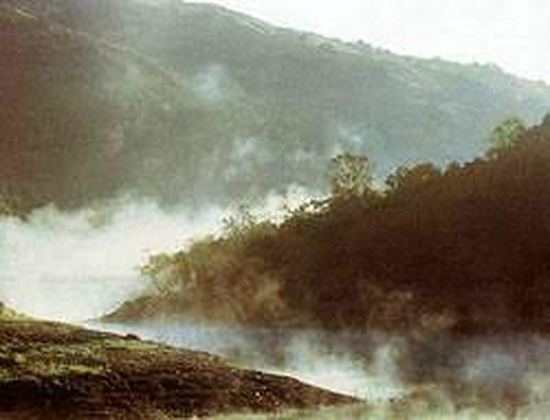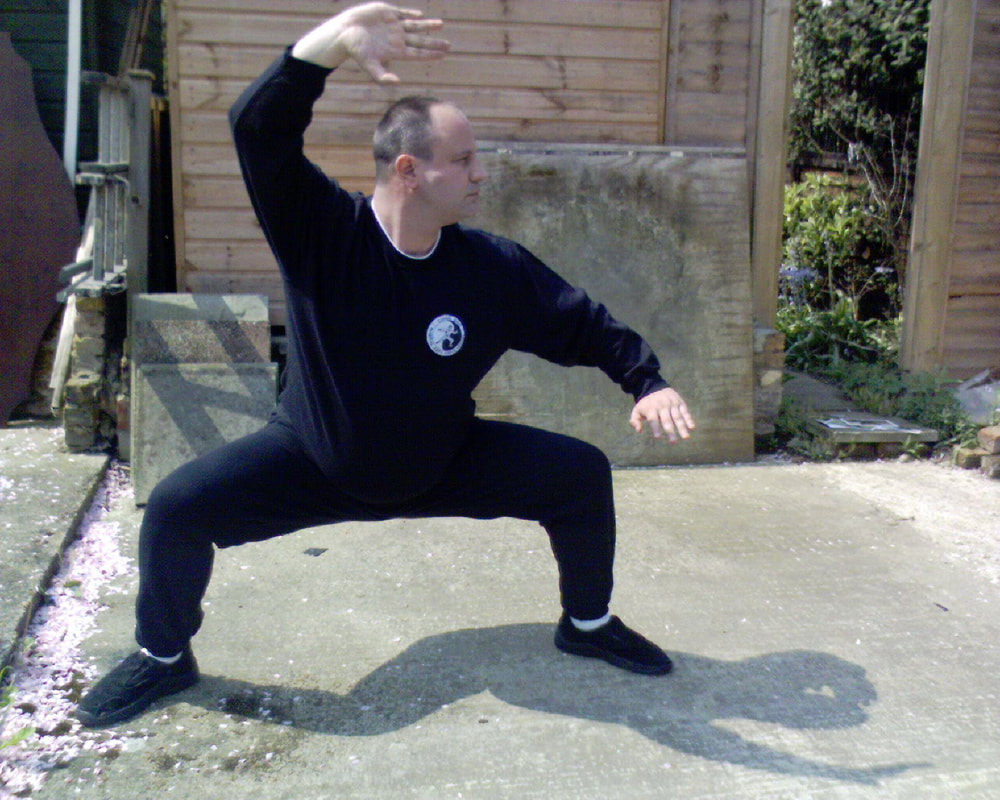This is an important avenue of research. It may well be that there is an inner circle of 'those who know' currently living in Okinawa - sworn to secrecy. Why? Well, in the old days in China there was never any case of a Style becoming 'popular' in the modern sense (where distinct individuals voluntarily choose to train en masse in a martial art - spending part of their disposable income on this endeavour over a considerable period of time). In the old days - Masters chose a small number of Disciples (perhaps only one or two per generation) whilst 'Character' (and 'References') mattered more than money.
The only equivalent of 'mass' involvement I can think of could involve religious movements or some type of militarised uprising (quite often these two entities overlapped - resulting in more or less the same thing) - such as the Taiping Rebellion, the Hakka-Punti Clan Wars and the Boxer Uprising - which saw tens of thousands publicly taught how to stand, manoeuvre in formation and fight (with and without weapons). As you know, China's history is strewn with examples of this type of militarised uprising - with each 'new' Dynasty being established through 'force of arms'.
Secrecy trumped publicity - with martial arts being 'hidden' rather than made 'known'. Most martial arts were kept within families and passed down from father to son and mother to daughter (there were martial arts just for women) - but never to any (different) branch of the same family or any (different) Chinese name group. A 'foreigner' in the old days was not a 'Westerner' - but another Chinese person from a different geographical place - with a separate name signifying an entirely 'different' lineage of 'Qi' (氣). The clan name is traced back to a single and exceptional 'Founder' - (thousands of years ago) - and it is the power of his Qi which flows through our veins and gives us life today - such is its potency.
Indeed, it is this 'Qi' which animates the martial movements concerned, and which 'empowers' the techniques so that they are effective in combat (saving and taking lives). It used to be thought that 'mixing' Qi (figuratively or literally) watered its power down - but this is viewed as out of date and unscientific today (although this attitude can still be found in the older Chinese diasporic communities). It seems that as Fujian province was designated a 'doorway' into and out of China - these attitudes were relaxed, transformed or completely abandoned. Remember, the issue is not clear with regards Okinawa, as it was considered a part of China at the time Higaonna Kanryo was taught by Ryu Ryu Ko. Today, it is considered part of Japan - and herein lies the first contradiction when it comes to 'clarifying' terms.
Normally, the 'Master' represents the unmoving centre of wisdom. This means that whilst the Master sits 'still' - those seeking his wisdom must undergo a dangerous journey to see him (as explained in the 'Classic of Change' and many other ancient Chinese texts). This is the equivalent to Confucius holding-up one-corner of a four-corned cloth - whilst his (enquiring) Disciple lifts up (and brings) the other three-corners to him. Enquiring Disciples travelling to Fuzhou seeking martial arts instruction would be the norm - whilst a Master travelling from Fuzhou to Okinawa would be the exception (but this does not mean it did not happen). If such a visit was required - say to settle a dispute - a Master would often send a suitably qualified Representative empowered to settle the matter at hand (Go Genki?).
Following the 1911 'Nationalist' Revolution (which was quite left-wing at its beginning under Sun Yatsen) - the traditional (Dynastic) restrictions regarding collective and individual movement were relaxed and Chinese people started travelling all over the interior of China and also out to foreign lands. People did travel abroad before this date - but such endeavours were dangerous and required various 'official' documentation not always easy to acquire. Of course, Ryu Ryu Ko could easily have travelled to Okinawa using the established (and much safer) business routes used by the Miyagi family to furnish the Okinawan royal family with their tea and other Chinese goods.
Thanks
Adrian


 RSS Feed
RSS Feed